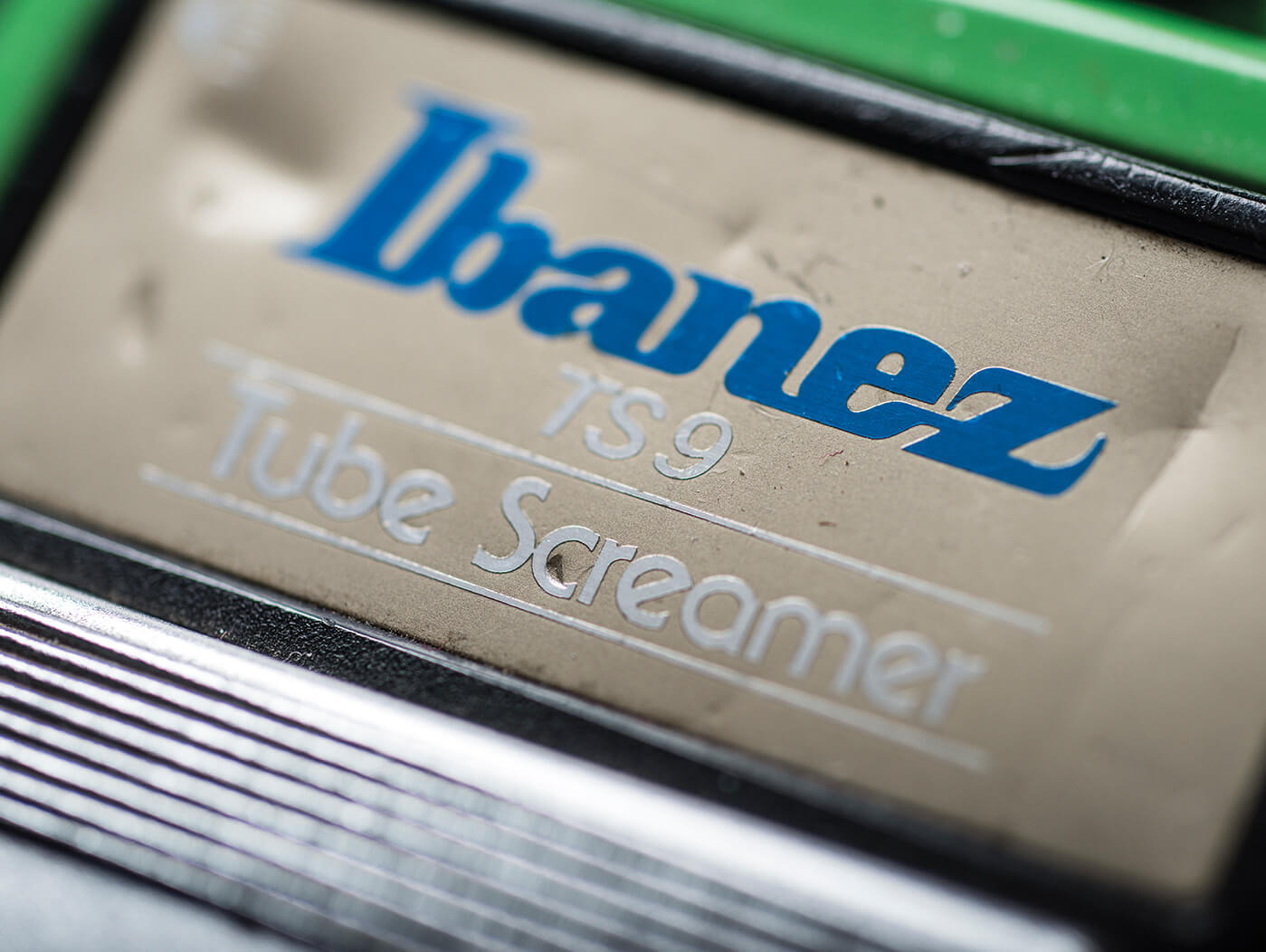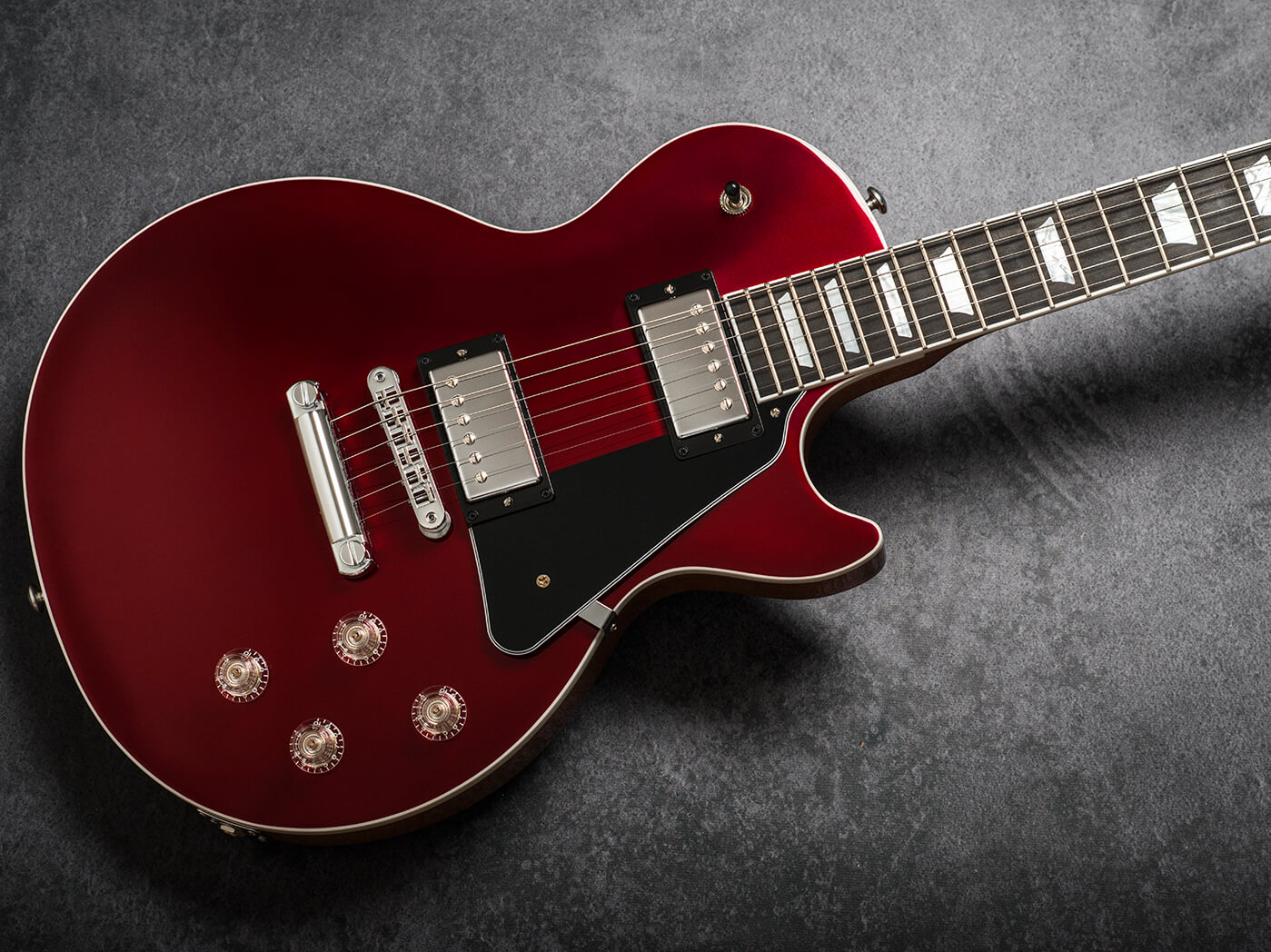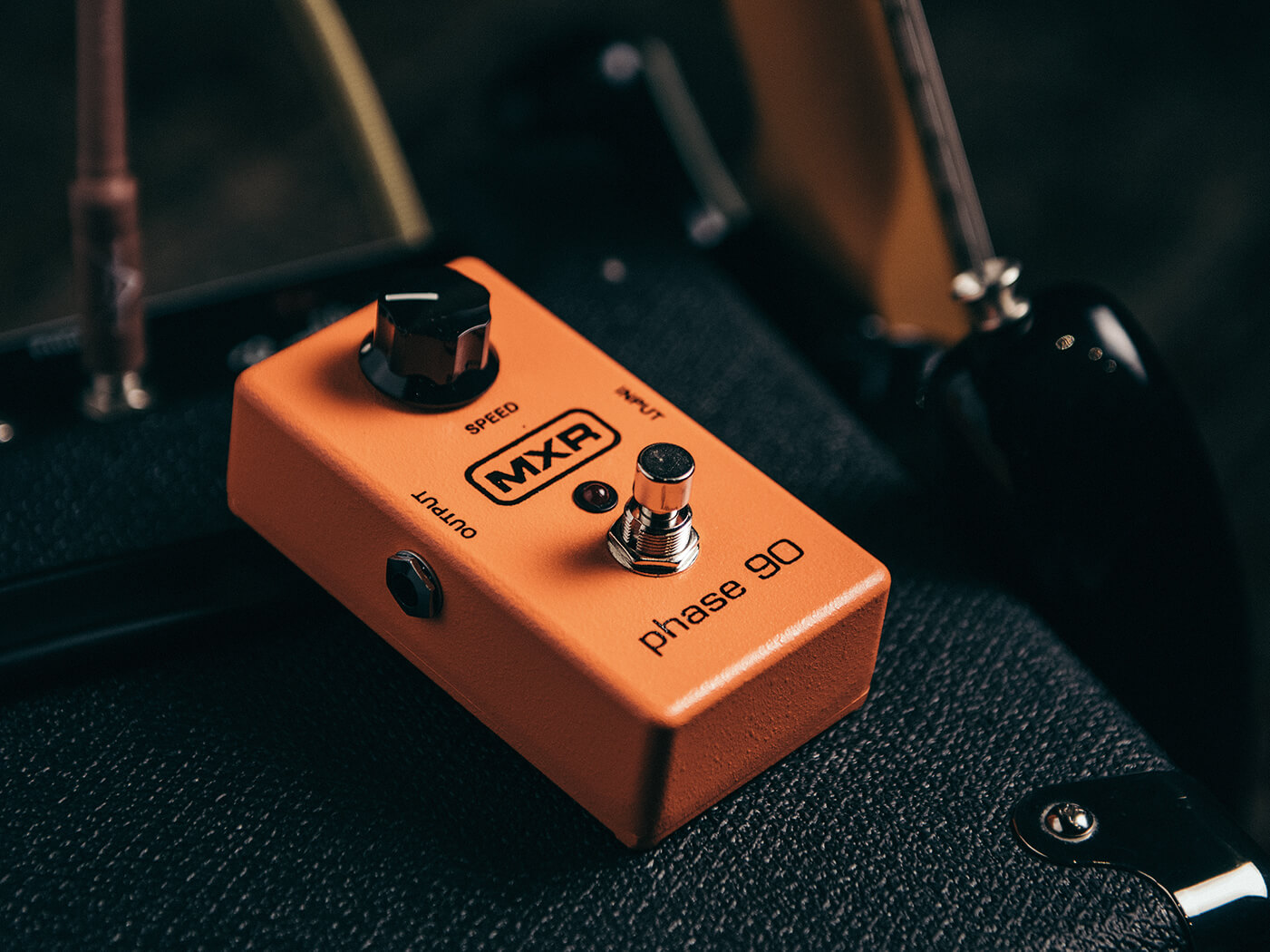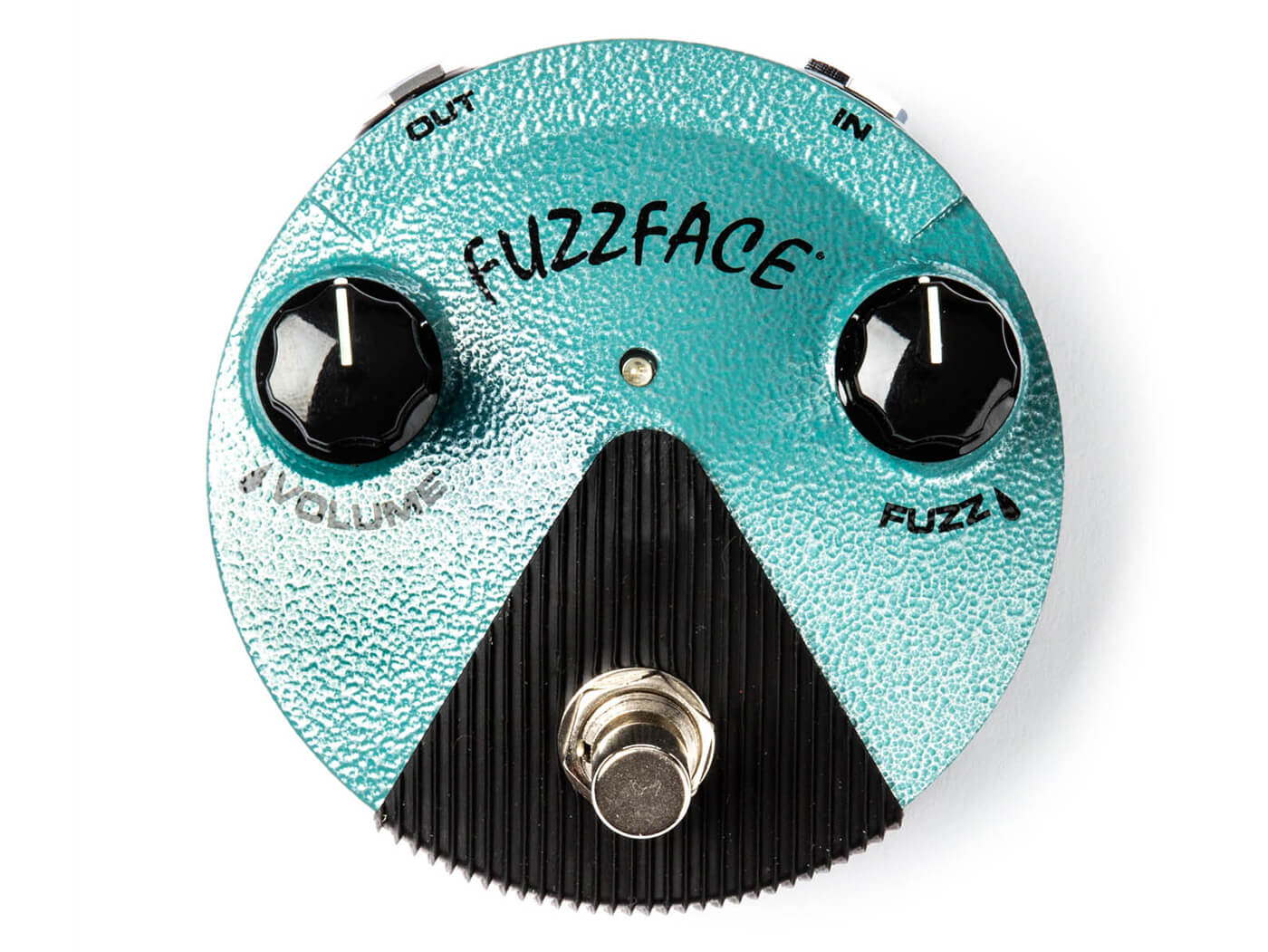Related Tags
Major Keys: The case for buying cheap, used and classic effects pedals
Aquabats! guitarist Ian Fowles argues that before you splurge on that fancy new boutique pedal you’ve been saving up for, maybe you should try something a little more humble.

We all have pedals. Some of us have a choice few, others have stacks and stacks of them. Regardless of how many we have, we are usually always on the hunt for more. I’m here to say that before you go buying the newest, shiniest pedal, take a look at the cheap used classics first. You might be glad that you did!

Buy Cheap
Buying cheap pedals is especially great for beginners. It allows newer players to build a ’board quickly and experiment with new tones without having to take out a loan. But we all like saving money, right? I think that no matter what level of a player you are, it never hurts to give everything a try. Try out that dirty old pedal you saw at a local shop. Gaining some knowledge of what is out there can only help you decided what does and doesn’t work for you.
And don’t forget, a pedal being more expensive doesn’t necessarily mean that it’s built better or will sound better for what you are doing. I’ve definitely been disappointed in the build quality of expensive or “boutique” pedals and guitars before. Unfortunately, the aphorism “you get what you pay for” does not always apply when it comes to effects pedals and other musical gear.
Because creating sonic landscapes is so case-specific and subjective, sometimes the “best” or priciest gear is not actually what you will want or need to create the sounds you are seeking. When you’re building your rig, you are looking to construct the tones that will best fit the song/album/band you’re crafting.
Such quests should hopefully lead to what combination of guitar, amp, and effects can meld together to produce this unique sonic flavour, no matter if they are older and a little roughed up. This especially applies to studio work, where no one can see what you are playing anyway, so no judgments can be made, aside from the final sounds themselves.
The world of guitar gear, and even audio gear at large, is filled with a lot of myths and legends. We all know about certain extremely overpriced pieces of gear that float around on the Internet and are said to be magical. Maybe it was handmade or only available in limited quantities. Perhaps a piece of gear was used and made famous by a certain artist or producer, and so the aura around it grows. Some think, “if I can just get that piece of gear, I will sound like them!”

To some extent that’s true. If you have a Les Paul and a Marshall you will sound more like Jimmy Page than if you have a Strat and a Twin. Certain gear can get you in the ballpark, but it’s never going to sound exact. I’m a big believer that the magic is in the fingers. You’re not going to sound exactly like the greats. And that is okay. Believe me, I’ve done it too. I’ve bought pedals my heroes were using. Did it make me sound more like them? Kind of… but in the end, not really, because I ended up playing different songs and developing my own thing with them.
Unless you are doing a tribute band and trying to be a carbon copy of a certain artist (nothing against those, I’ve played in many and they are super fun!), chances are that you’ll be using the coveted amp or pedal slightly differently than your idol, because after all, its YOU playing it, not them. YOU have different magic in your fingers then them and so things are going to come out differently. And that’s the way it should be.
Personally, I’m a big fan of Ethan Winer. Among other things, Winer is an audio engineer and a designer/builder of acoustic treatments for recording studios. In his really great book The Audio Expert, he becomes an audio gear myth-buster. A recurring theme of that book is that you should use what sounds good or right for your project, not what is priced high or built up by hype or newness. You don’t need gold-plated cable tips to make good music. I echo this sentiment completely.
Recently I had an experience that confirmed this. While on tour I stopped into a music store and plugged a very cheap used guitar into a 40-year-old beat up solid-state combo amp (that literally had spiderwebs all in it) and… It. Sounded. Awesome. Granted, it was a very specific sound, but it was incredible. It went against everything that we are conditioned to believe about “good” guitar tone. But there it was. The proof is in the sound.
I’ll give another example. Currently on my board for The Aquabats! is a Danelectro Fab Echo. It’s a one-trick pony – a great slapback delay. I bought one nine years ago specifically for one song, but have found uses for it in others in our set. You can constantly find them used for around $15. In fact, I am on my second one, which combined with the price of the first is still less than other pedals that cost much more and might not even pull off this sound quite as good.
Buy Used
Another name for effects pedals is of course, ‘stompboxes’. It’s clear right there in the name that these are devices that are made to be stepped on by your dirty shoes. As such, they will take a serious beating… so why do care if they are brand new? Tape, Velcro, dirt, spilled drinks, sweat, dust, spit, hair, and blood are just some of the things that have ended up on my pedals over the years. Why would I want to pay more for a device that just ends up getting punished on tour? Don’t tour, you say? It doesn’t matter. If you actually use them at all, they will get dirty. It’s called entropy and it’s a law of the universe.
Buy Classic
Some pedals really stand the test of time. They become classics for a reason. The Electro-Harmonix Big Muff, the Ibanez Tube Screamer, and the MXR Phase 90 all come to mind. Whether it was played on a certain record or by a certain guitarist, we all have sounds that we love that were sculpted through particular pedals. In times past, there were a lot less effects pedal companies than there are now.

Today, when doing a Google search for Klon Centaur clones, one article gave me a list of 36 different options. This makes choosing pedals much harder these days. Before, the only way to find out about new pedals was through guitar magazines, going to a music store, or from a friend. And even then, you almost always had to buy it to find out how it sounded. Now, with online gear demo videos in the thousands upon thousands, chances are you can find a demo for almost every pedal ever made and maybe they are even using your guitar and amp in the video as well.
This can help narrow your search, or perhaps just fuel your Gear Acquisition Syndrome. Either way, you have to start somewhere, and I say, start with the classics. If you look at a lot of pedal companies, many are often just making their version of a classic pedal. For example, a company like JHS Pedals freely admits this about many of their designs, which I really admire. They aren’t trying to pass off an unoriginal design as their own. Owner and designer Josh Scott has clearly done his research (as can be seen in his cool vlog The JHS Show on YouTube) and made creative tweaks on beloved favourites as well as some very cool pioneering designs of his own.
My advice is to become familiar with the original pedal first, so you will know how newer versions differ. Get a cheap used Dunlop Fuzz Face or a Boss Super Overdrive. Give it a test drive and then try out an updated design by a newer company inspired by the original. A great facet of looking into classic pedals is that there are usually a lot of them on the market used, and therefore are competitively priced to move.

Another great thing about pedals is that they can always be sold if you want to change your sound, or become bored with one. No decision is permanent with pedals, so why not give some of those cheap used classics a try. Who knows, they might stick around on your board forever.
Find out why Fowles believes you should always play guitar while watching TV.
